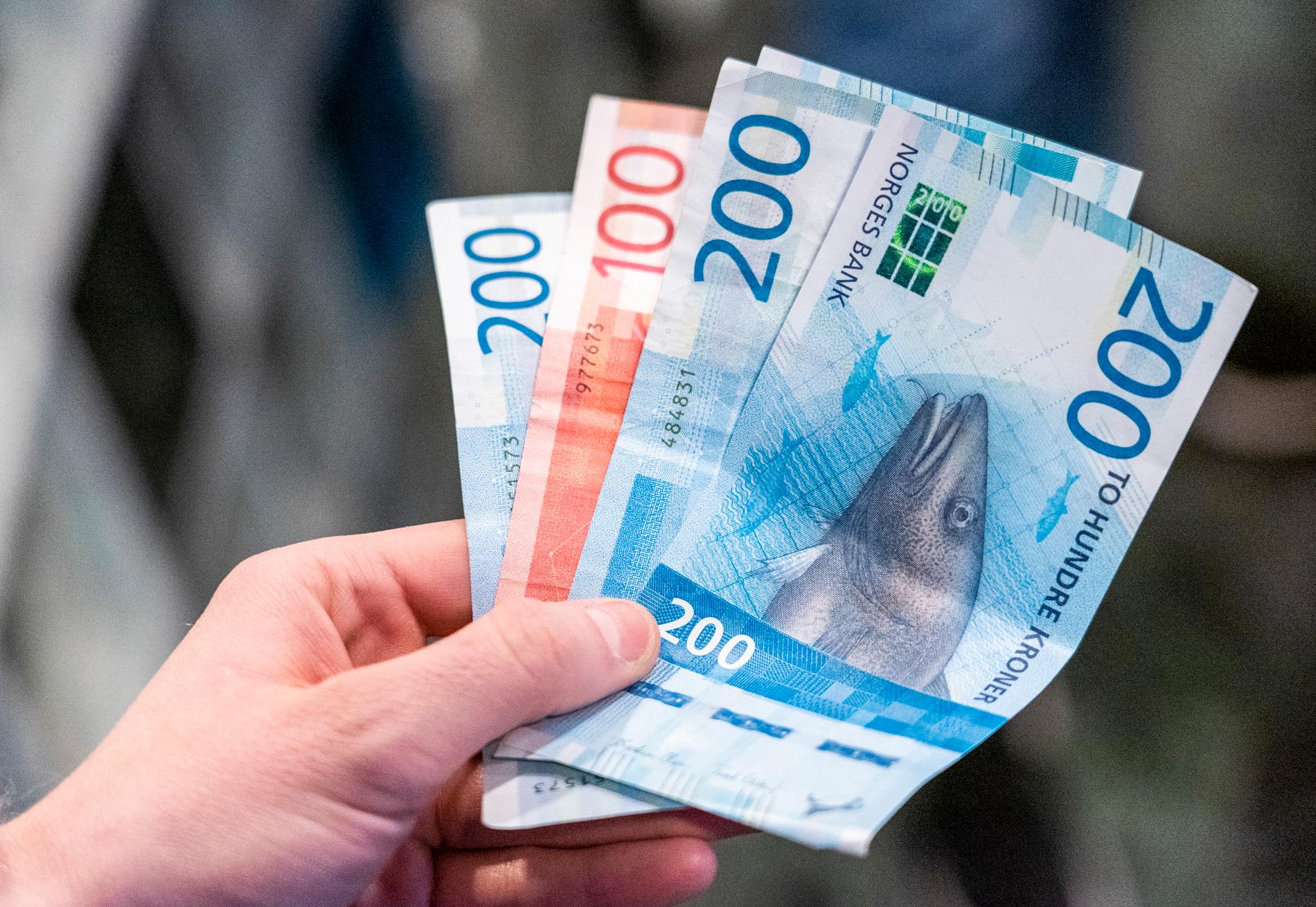Norges Bank continued to sell krone, but cut sales of krone by NOK 300 million. Analysts expect the euro krone this summer.
Short version
- Norges Bank reduced sales of Norwegian krone from NOK 1.3 billion to NOK 1 billion per day, down by NOK 300 million.
- The sale (exchange) of krone occurs in order to transfer foreign currency to the Petroleum Fund, which invests abroad. Not to be confused with currency intervention, which means the central bank sells kroner to influence the exchange rate of the kroner.
- The krone exchange rate strengthened somewhat after the announcement, but has since stabilized.
- Nordea currency strategist Dane Czechov believes this is good news for the krone exchange rate, but expects it to weaken over the summer.
Summary created by AI tool ChatGPT and quality guaranteed by E24 journalists
Case updated.
Norges Bank cut sales of krone from NOK 1.3 billion per day to NOK 1 billion, according to one Message from the central bank.
In June, sales of krone to Norges Bank were cut by NOK 100 million to NOK 1.3 billion per day.
Previously, DNB Markets expected sales of the krone to remain unchanged. Handelsbanken, for its part, expects sales of NOK 1.2 billion in krone.
The krone strengthened slightly against the euro immediately after the sale was announced, but quickly reversed, and the krone exchange rate is now roughly at the level before the sale was announced.
– Positive news
Currency strategist at Nordea, Dane Czechov, said that this was a bigger drop than Nordea had expected, but it was in line with the fact that oil and gas prices fell from last year’s highs.
He pointed out that there were small fluctuations in the krone exchange rate.
– When we look at the selling of krone in the context of buying oil companies, it leads to a positive balance of buying krone, which results in a net increase. That points toward the krone being stronger in isolation, Czechov said and added:
– In this sense, this is positive news for the krone exchange rate, but a lot can happen during the summer.

He didn’t think the krone would strengthen much over the summer, but instead might weaken. He estimates that one euro will be around NOK 12 all summer, and there will still be fluctuations in the exchange rate of the krone.
– Norges Bank has reduced sales of krone over the past six months precisely because oil and gas prices have fallen. There is reason to believe that sales of the krone will decline towards the end of the year, and this also points towards a stronger krone towards the end of the year.
Strong interference
In the past year, the krone has weakened about 13 percent against the euro and 8 percent against the dollar. This means that we have to pay more to shop from, or travel to, countries that use this currency. In return, it will be easier for us to sell our goods abroad.
The weak krone also makes it difficult to reduce inflation (rising prices). When the Norges Bank raised interest rates in June to 3.75 percent, central bank governor Ida Wolden Bache made it clear that the weak krone had contributed to higher inflation.
Oil companies have cut krone purchases
The sale (exchange) of krone occurs in order to transfer foreign currency to the Petroleum Fund, which invests overseas. Not to be confused with currency intervention, which means the central bank sells kroner to influence the exchange rate of the kroner.
Sales of krone offset over time for most oil companies’ purchases of krone to pay taxes, but because of their size, they can still affect the exchange rate of the krone, especially since exchanges do not have to coincide.
Norges Bank recently indicated that the recent decline in oil and gas prices may have been the cause Oil companies have reduced their krone purchaseswhile sales of Norges Bank krone experienced a smaller decline.
This year’s sale of krone under the auspices of the Norges Bank reflects the very high oil and gas prices in 2022, as in the first half of the year oil companies paid oil taxes on last year’s earnings.
– Mainly have to reduce the sale of krone
On Wednesday, chief analyst at Danske Bank, Kristoffer Kjær Lomholt told E24 that he believes there is too big a gap between how many kroner Norges Bank sells compared to how many kroner oil and gas companies buy. He believed that the sale of krone was important for the krone’s exchange rate.
– Norges Bank must first reduce the sale of krone. We think it should be around NOK 600 million a day, not NOK 1.3 billion as it is now. The reason why they have kept it high, we believe, is because the assumption of petroleum yields is too high, he said.
Also read
Chief analyst: – Norges Bank must first reduce sales of krone
More changes than before
For several years, Norges Bank bought kroner on behalf of the state so that oil revenues denominated in foreign currency could be used for the state budget.
However, since April last year the situation has reversed, when the flow of krone exceeded the amount that should have entered the state budget. Sizeable kroner amounts of oil company tax payments are now being sold every day.
As a rule, Norges Bank has tried to smooth out krone transactions throughout the year to avoid unnecessary agitation in currency markets. However, in the last six months, there has been a tremendous change.

“Music maven. Evil pop culture lover. Unapologetic creator. Friend of animals everywhere.”






